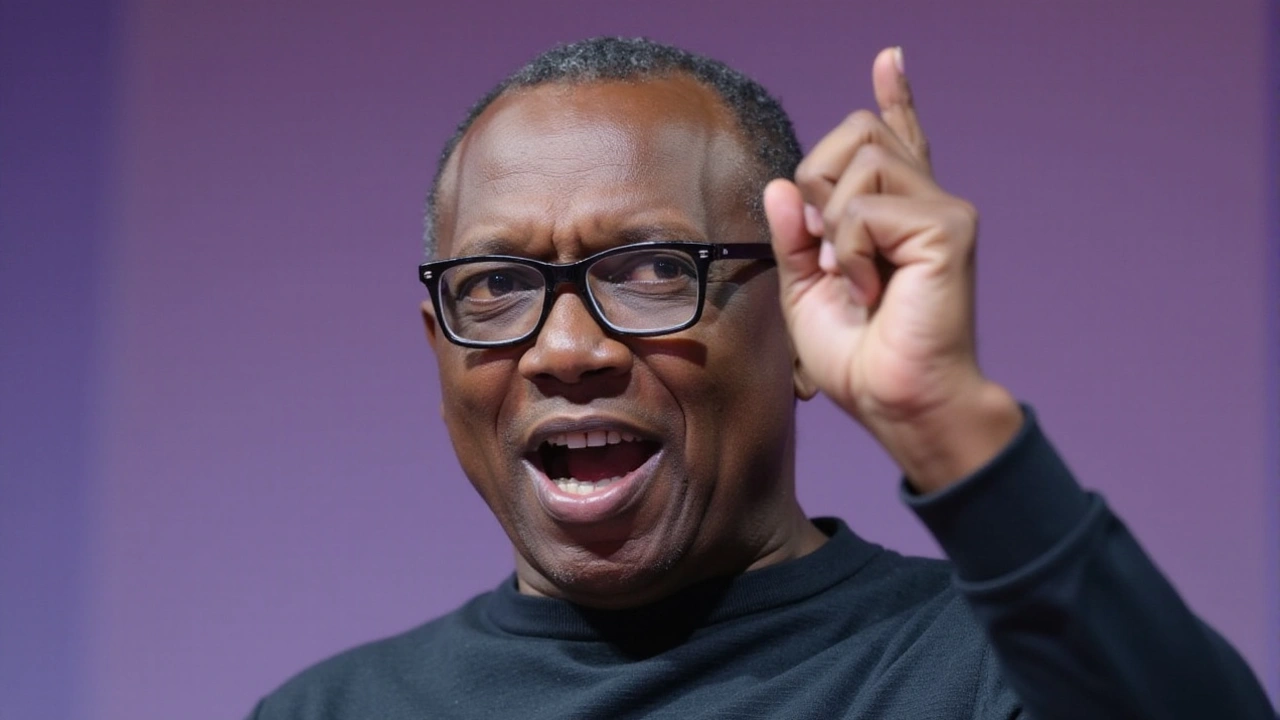Recent events have shed light on a rising tension between the Nigerian government and labour leadership. The former governor of Anambra State, Peter Obi, has voiced his apprehensions concerning the police summons issued to Joe Ajaero, the President of the Nigeria Labour Congress (NLC). Obi’s cautionary statement draws attention to an underlying concern about the perceived crackdown on labour leaders and the potential misuse of power.
Peter Obi's Concerns
Peter Obi’s concerns are anchored in his recognition of democracy’s fragility in the face of unchecked power. The past few weeks have witnessed turmoil as Joe Ajaero, at the helm of the NLC, became the subject of police summons. According to Obi, such actions might be interpreted as an attempt to intimidate or silence vocal leaders within the labour movement. Given Ajaero's significant role, the summons doesn’t merely affect one individual but sends ripples across the broader landscape of labour relations in Nigeria.
A core component of Obi's argument is the necessity for governments to respect and uphold the rights of their citizens. This call extends specifically to those in leadership positions who, due to their visibility and influence, are particularly susceptible to political maneuvering. In this context, Ajaero’s summons exemplifies not just a singular event but a symptom of a deeper issue regarding political freedom and the respect for democratic norms.
Respecting Democratic Principles
Democracy thrives on the foundation of mutual respect and lawful interactions between government entities and civil organizations. For Obi, the recent actions taken against labour leaders suggest a departure from these principles. He emphasizes that the effectiveness of a democracy can be gauged by how it treats its dissenters and those who hold opposing viewpoints. When authority figures attempt to quash these voices through intimidation or legal harassment, it raises red flags about the health of democratic institutions.
In Nigeria, where political histories are often fraught with tales of power struggles and civil resistance, the relationship between the government and the citizenry remains delicate. Labour leaders, representing the workforce, play a pivotal role in advocating for employee rights and pushing for fair labour practices. If these leaders are subjected to undue pressure, the entire construct of civil advocacy can be jeopardized.
The Role of the Labour Congress
The Nigeria Labour Congress, led by individuals like Joe Ajaero, is central to the fight for workers' rights in the country. The NLC's role necessitates interactions with governmental forces, often leading to disagreements centered around policies and labour laws. In such a contested arena, the independence and voice of labour leaders become sacrosanct. Obi's warning underscores that summoning Ajaero may not only undermine the NLC’s mission but also deter other leaders from voicing concerns for fear of reprisal.
By urging the Federal Government to tread carefully, Obi's statement acts as a reminder of the significance of protecting these civic leaders. A steady dialogue characterized by mutual respect versus coercion ensures that both sides can work towards common goals while maintaining democratic decorum.
Political Implications
Beyond the immediate context, the political implications of Ajaero’s summons are profound. With Nigeria positioned on a global stage, its commitment to democratic values is constantly scrutinized. Actions that suggest a suppression of dissent can affect the country’s international relations and its reputation as a democratic state. Obi’s insistence on addressing the issue with caution reflects an understanding that how the government handles dissent is indicative of its broader respect for democratic freedoms.
Labour movements worldwide have historically been on the frontlines of social and economic change. The NLC’s confrontation with governmental forces thus mirrors larger global narratives on the struggle between institutional power and grassroots advocacy. A failure to recognize and respect this dynamic might not only stifle immediate dissent but also ignite larger, unforeseen uprisings of resistance.

The Need for Lawful Interactions
Peter Obi’s clarion call for peaceful and lawful interactions cannot be overstated. Essential to any robust democracy is the manner in which disagreements are managed. Condemning the use of coercion, Obi advocates for dialogue and legal pathways that respect the rights of all parties involved. This approach isn't merely about avoiding immediate conflict but ensuring long-term stability and trust.
Furthermore, Obi’s statements underscore a broader principle: the importance of governance conducted with transparency and accountability. When actions against individuals like Ajaero are perceived as politically motivated, it erodes public confidence in state institutions. To prevent this, the government must consistently demonstrate its commitment to fair and impartial governance.
Conclusion
The summons of Joe Ajaero by Nigerian police forces has cast a spotlight on the ever-precarious relationship between state mechanisms and civic leaders. Through his timely intervention, Peter Obi has illuminated the broader implications of this event, urging for a governmental approach rooted in respect for democratic values and human rights. By calling for caution, he highlights the importance of nurturing a political climate where every Nigerian, irrespective of position, can exercise their freedoms without fear of intimidation or reprisal.
As Nigeria continues to navigate its democratic journey, the voices of its leaders, both in government and civil society, must work in tandem to uphold the nation's core principles. The dialogue inspired by Obi's remarks serves as a critical reflection on the path forward, offering a vision of a Nigeria where rights are respected and democracy is truly practiced in both letter and spirit.
